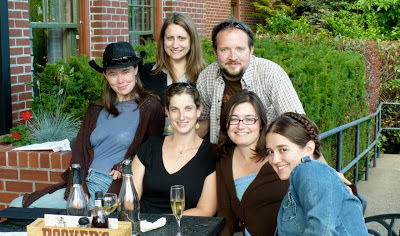Writing Through It
It’s easy to look back and say this now, but those years absolutely prepared me for the new terrain of the novel that I’m embarking on here in the Airstream. No grad school program. No fellowship to support my work. No other writers just a few steps away. Just me, my motivation, and whatever skills I can muster. When I run into craft concerns, rather than shoot an email to an advisor or writing friend (of which I am grateful to have several), I’m more apt to think it over and make myself keep pushing ahead. On mornings designated specifically for writing, it’s not unusual to find myself sitting on the couch and staring. Just thinking. Often talking out loud to myself. If I can name the problem, I can allow a space for an answer to arise. If an answer arises, I can write my way towards it and see how it feels.
In more concrete terms, that looks like this:
Problem: The writer wonders, how much backstory is too much? Maybe I need to stop what I’m writing now and figure this out. But how do I figure it out?
Solution: The writer goes to her bookshelf, pulls works by several notable authors off the shelf, and reads until she finds an example of how someone else has handled this problem. The writer returns to her clipboard and pen and thinks a little while longer. Sometimes, that is the end of the session and the writer thinks about this problem the rest of the day, returning to it the next morning. Other times, it is the beginning of five new pages in the novel.
Or,
Problem: The writer wonders, how far afield can I go from my present narrative before the reader gets disoriented? Maybe I’ve gone too far. Some of this page isn’t even in a specific bracket of time. Am I allowed to do that?
Solution: The writer makes a map of her own story, tracing the narrative and its undercurrents, flashbacks, flash forwards, and eddies. The writer stares at this map, considers how it looks and feels. Contemplates the balance of scene and summary. The writer decides she can keep going, that the band has not been stretched too tight.
During grad school, when major questions arose, I put them into someone else’s hands and waited for a
response. That was a good thing for me at the time. I was still
apprenticing and I had so many other craft issues to deal with that I had to relinquish some of the biggies to the experts. I was still leaning as much (if not more) on the expertise of others as I was my own skill set. The advice I received then helped me build my foundation. Now, I can stand on the ground floor on my own two feet. I can walk over to the window and look out. I can see the possibilities myself and eventually return to the desk, writing my way through whatever arises.
Most writing days, this process feels like the beginning of the rest of my life and it delights me from sunup to sundown. I’ll always have and need my good writing friends. I’ll always study the work of others to see what I can learn. But I’ll also always have questions. Finally, after a good bit of training, I can really say that I’m able to be my own best coach and guide through this process. Above all else, I’m able to write. Simply. Without excuse or obstruction. The only requirement is that I show up and do the work. What do I wake up eager to do each morning? Exactly that.



Katey,
What a great post. You've articulated something here that I've felt for a long time. Thanks for finding the words.
What a great way of explaining this stage of the writing journey! Enjoy it!
Katey,
Your posts resonate deeply as I pursue the creation of visual imagery to represent ideas and emotions. Your words are direct, positive, and empowering. Thank you!